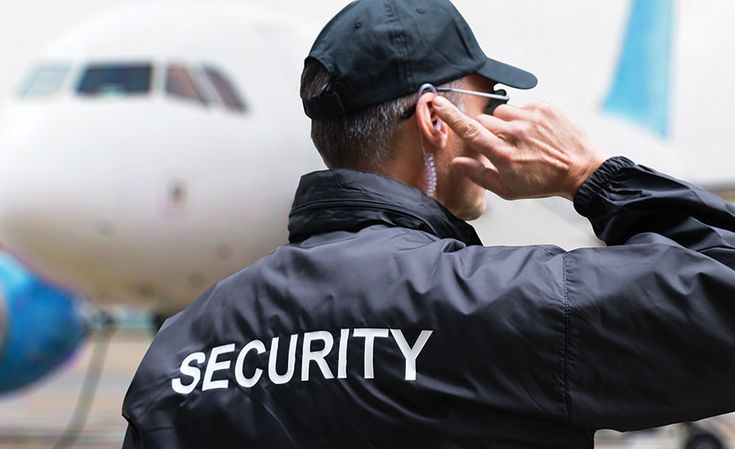
Technology and Security: How Security Guards Embrace Modern Tools
In a rapidly evolving world, the role of security guards has also undergone a significant transformation. Gone are the days when a security guard’s duties primarily involved patrolling a location and responding to emergencies with limited resources. Today, security professionals leverage a wide array of modern tools and technologies to enhance their effectiveness and protect the people and assets they are responsible for. In this blog post, we’ll explore the innovative ways Security Guards in Melbourne embrace modern tools to ensure safety and security.
Surveillance Cameras: The Watchful Eye
One of the most ubiquitous and indispensable modern tools in the security industry is surveillance cameras. These devices have become an integral part of security systems in various environments, from commercial properties and residential areas to public spaces. Security guards rely on cameras for constant monitoring and documentation of activities. This real-time visual information provides valuable insights, helps deter criminal behavior, and is crucial in post-incident investigations.
Advanced features such as facial recognition and analytics allow security personnel to quickly identify potential threats, track individuals, and enhance overall security. Furthermore, the integration of surveillance systems with the cloud and mobile apps enables security guards to access live footage and alerts remotely, providing flexibility and responsiveness.
Access Control Systems: Strengthening Perimeter Security
Access control systems have revolutionised the way security guards in Melbourne manage entrances and monitor people’s movements. These systems use key cards, biometric identification, or PINs to regulate access to restricted areas. Security personnel can configure and customise access rights, keeping unauthorised individuals at bay while ensuring authorised personnel can move freely.
Modern access control systems are highly secure, enabling real-time tracking and reporting. In the event of an incident, security guards can easily pull up access logs to determine who was where and when. This not only enhances security but also simplifies post-incident investigations.
Communication Technology: Staying Connected
Effective communication is paramount in security operations. Modern tools have significantly improved how security guards communicate and coordinate. Two-way radios, mobile phones, and secure messaging apps ensure that security personnel can stay in touch with each other, as well as with central command, in real time.
Communication technology also enables rapid response to incidents. Security guards can quickly relay information to emergency services, management, or clients. Moreover, some advanced communication systems are equipped with panic buttons, geo-fencing, and GPS tracking, allowing for immediate assistance in emergency situations.
Drones: A Bird’s-Eye View of Security
Drones have found a place in the arsenal of modern security tools. These unmanned aerial vehicles offer a unique perspective, allowing security guards to survey large areas from above, which would be challenging or time-consuming on foot. Drones equipped with high-resolution cameras and thermal imaging can identify intruders or safety hazards.
Drones are particularly useful in remote or challenging terrains and can be used for incident assessment and search and rescue operations. They also provide a cost-effective alternative to helicopter patrols and reduce the risk to security personnel.
Biometric Technology: The Future of Identity Verification
Biometrics, such as fingerprint and facial recognition, have revolutionised identity verification and access control. Security guards in Melbourne are increasingly adopting biometric technology to enhance security in sensitive areas. Biometrics are highly accurate and difficult to forge, making them a powerful tool in ensuring only authorised individuals gain access.
This technology is not limited to physical access control; it is also used in visitor management systems, where biometric data is stored securely and can be cross-referenced with watchlists. This further enhances security by preventing the entry of individuals with a known history of security concerns.
AI and Machine Learning: Predictive Analysis
Artificial Intelligence (AI) and Machine Learning (ML) have ushered in a new era of predictive analysis in the security industry. Security guards now use these tools to anticipate security threats before they occur. AI and ML algorithms can process vast amounts of data, identify patterns, and generate predictive insights, thereby enabling security personnel to take proactive measures.
These technologies are employed for video analytics, behavior recognition, and predictive patrolling. For example, AI-powered systems can detect suspicious behavior or abandoned objects in real time, alerting security personnel to potential threats. ML algorithms can also optimise patrol routes based on historical data, increasing the efficiency of security operations.
Incident Management Software: Streamlining Response
Incident management software is designed to streamline the response to security incidents. Security guards in Melbourne use this technology to record and manage incidents, from minor disturbances to major emergencies. The software can automate workflows, assign tasks, and provide real-time incident updates.
This modern tool enhances the coordination of response teams and ensures that every step of incident management is documented and accessible for future reference. It’s an invaluable asset for maintaining security and safety records.
Conclusion
The integration of modern tools and technologies into the security industry has not only enhanced the capabilities of security guards but has also raised the bar for safety and security standards. Surveillance cameras, access control systems, communication technology, drones, biometrics, AI, and wearable technology have become vital components of a security professional’s toolkit. As technology continues to advance, so too will the capabilities and impact of security professionals, ensuring a safer and more secure future for all.


